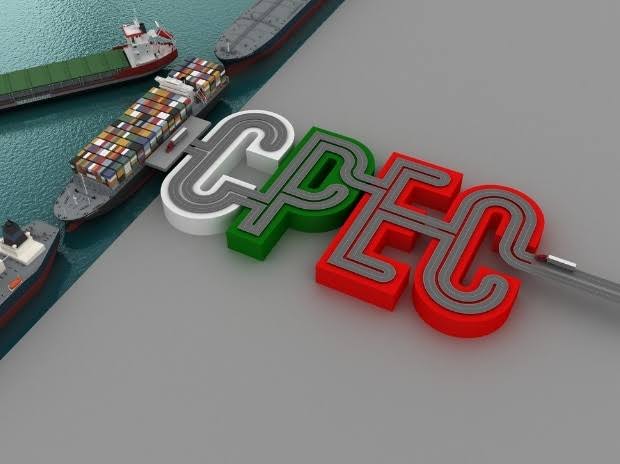CPEC is a failure because of failed security environment

The repeated attacks on China Pakistan projects in Baluchistan by the Baluch National Army underscores the narrative that so-called developmental projects initiated by the Pakistan Occupation Govt primarily serve their own interest while offering little to no benefit to the people of the Occupied Baluch nation. Similar is the case in Pakistan Occupied Kashmir, as CPEC projects are just destroying the environment with no benefit to the locals.
Earlier in March, Khurshid Ahmed, the Information Secretary of the Baloch Human Rights Council, had highlighted the negative implications of the China-Pakistan Economic Corridor (CPEC) in Pakistan Occupied areas of Balochistan. There has been increased violent attacks on Chinese projects in Occupied Balochistan.
Pakistan Senate Chairman Syed Yousaf Raza Gilani too stressed the need for prioritizing inclusive and sustainable growth and ensuring that no region is left behind. Meanwhile, Pakistan Tehreek-e-Insaf (PTI) leader Barrister Ali Zafar expressed concerns regarding the slow progress of CPEC and called for an acceleration in the project’s development. He later held a meeting with Pakistan’s Army Chief General, Asim Munir, in Rawalpindi.
A high-ranking Chinese official on Friday called security the foremost challenge threatening the future of the China-Pakistan Economic Corridor (CPEC) and stressed for an urgent need for boosting security protocols and a more supportive business and media environment to ensure the continuation and success of the project, Pakistan-based Dawn reported.
The Minister of the Central Committee of the International Department of the Communist Party of China, Liu Jianchao, made the remarks at the third meeting of the Pakistan-China Joint Consultative Mechanism. Representatives from all major Pakistani political parties attended the meeting.
He said, “Security threats are the main hazards to CPEC cooperation. As people often say, confidence is more precious than gold. In the case of Pakistan, the primary factor shaking the confidence of Chinese investors is the security situation,” Dawn reported.
The Joint Consultative Mechanism (JCM) forum, initiated in 2019, held in-person meeting after five years. The JCM forum also held a virtual session in August 2020.
In recent years, terrorists have targeted Chinese projects in Pakistan, including CPEC. In March, two attacks highlighted the threats.
The Baloch Liberation Army, tried to breach the Gwadar Port Authority complex. However, the assault was foiled, Dawn reported. Furthermore, a suicide bomber in Khyber Pakhtunkhwa’s Shangla district hit a convoy of Chinese engineers, claiming the lives of five engineers and their local drivers.
These incidents are part of a series of targeted violent incidents intended to disrupt CPEC. This threat has significantly affected the continuity of the project, contributing to the slowdown of CPEC’s progress in recent years.
Liu Jianchao called for improving the business environment in the country. Pakistan has difficulty attracting Chinese investments due to its precarious financial situation and a history of unmet commitments to Chinese firms in the power sector.
The reluctance among Chinese investors is enhanced by the reluctance of Chinese influence company Sinosure to cover new projects, causing a significant slowdown in the initiation of these endeavours. In addition, the development of Special Economic Zones, a vital component of CPEC, has remained stagnant.
Liu called for a unified political front to have broad public consensus and support for CPEC. He highlighted the importance of tackling misinformation campaigns.
He said, “We must take that seriously and create a CPEC-friendly media environment.” Stressing the need for stability in Pakistan, he said, “Only when all political parties in a country join hands to ensure political and social stability can there be sustainable development.”
In his remarks, Pakistan’s Deputy Prime Minister and Foreign Minister, Ishaq Dar, expressed Pakistan’s commitment to advancing and upgrading CPEC in its second phase.



